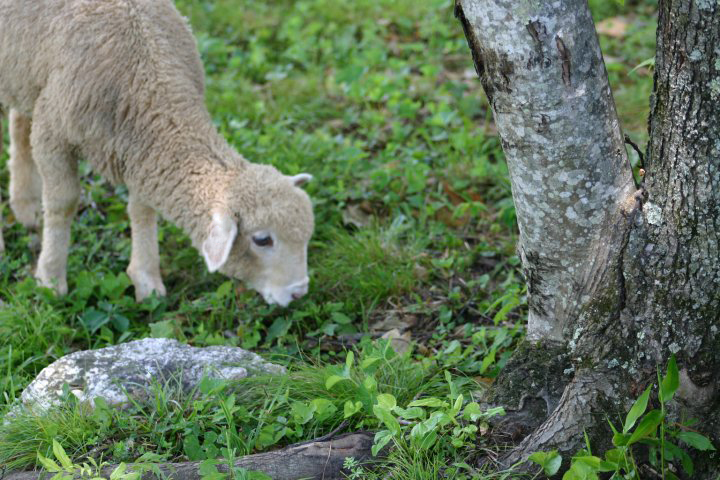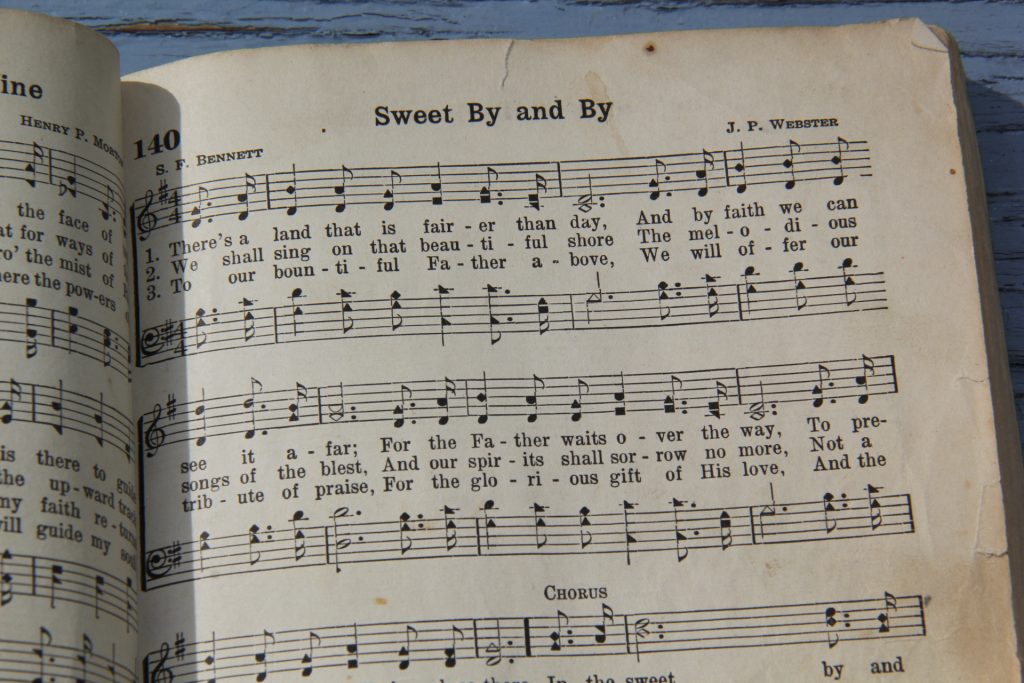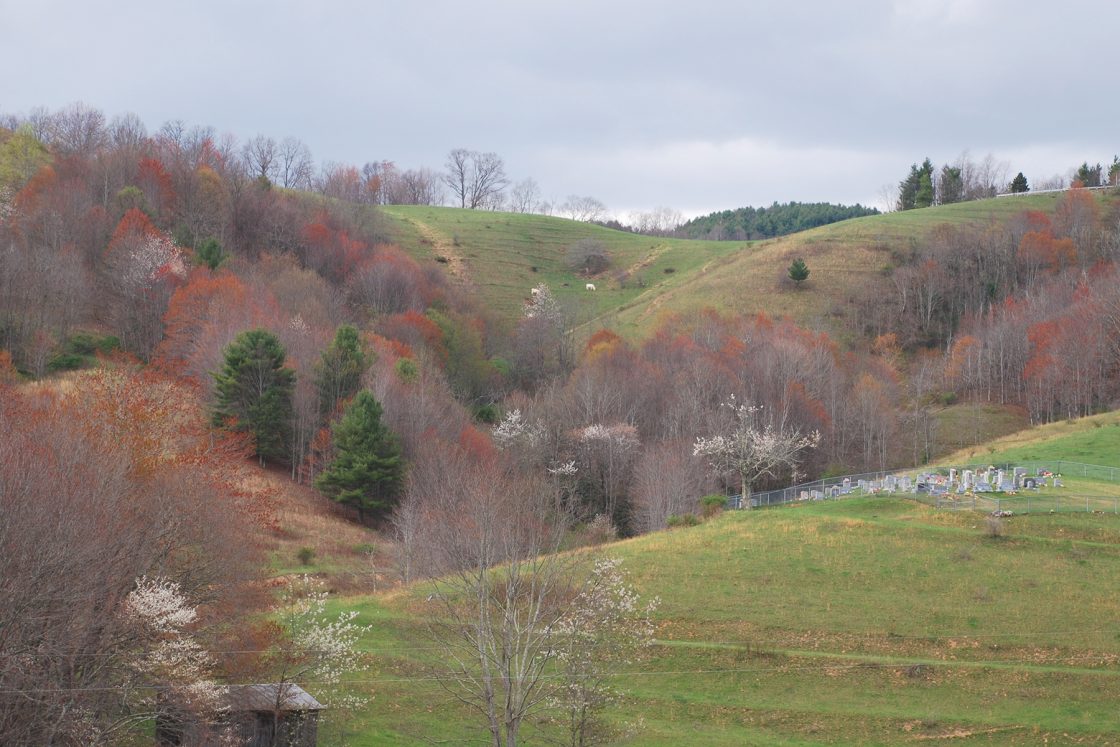It was a chilly spring morning in May. A brand new day full of possibilities. After breakfast, Dad told my Mom that he was going to our upper pasture land in Virginia. He needed to check on the sheep, especially two late lambs that were born in April. I got my little red sweater and I was ready to go, too. Dad didn’t actually say I could go, but he didn’t say that I could not. Why I wanted to go with him, I don’t know. Dad had long legs and he walked with a steady pace – uphill or down. I had to hurry as fast as my nine year old legs would carry me. Sometimes I sat down to rest and then had to run to catch up. We crossed the North Carolina / Virginia state line and kept going. Soon we were on the mountain. We walked around into the holler where the spring was and Dad set up the salt block he had brought for the sheep. When he called them, the flock came because they knew his voice. One of the small lambs was missing. We searched for it every where, but did not find it. Dad said a big bobcat probably got it to feed its young.
Before we started off the mountain, Dad said we would visit his Aunt Liddy. We went around the hill and passed the woods to a log cabin that set on the edge of a field. The spring house, cellar and barn were close by. Soft gray smoke rose from the rock chimney. We stepped up on the porch and Dad knocked on the door. It was opened by an older lady wearing a long black dress. Her hair was pulled back in a tight bun and she looked so weary. Aunt Liddy asked us to come in and set with her for awhile. As they talked, I noticed a silver brooch on her collar with a black stone in the middle. It was a piece of mourning jewelry (worn when a loved one passed away). She asked if we would care for something to eat. My Dad said, “No, Maggie will have dinner ready when we get back home.” A metal pan of apples and a paring knife set on a straight back chair. She offered us some of those. That was considered good hospitality at a mountain home. The apples would have been kept all winter in the dirt cellar.
After awhile, Aunt Liddy asked Dad if he wanted to see Daisy. We followed her down a hallway where she opened the door to a large room. Near the window stood a bed with the highest head board I had ever seen. The bed itself set up high. Standing on my tip toes, I wasn’t tall enough to see, but it looked like someone was lying on top of the covers. A thin curtain was gathered and fastened to the top of the high headboard. Gently it came down over the figure on the bed. Dad lifted me up and held me high enough so I could see. I stared at the lovely young woman lying there. She was dressed in a pink gown. Her hair was brown, with a reddish tint. She looked like a sleeping fairy princess and I felt glad to have seen her. Nobody told me she was dead! I didn’t find that out until later. Her empty wheelchair sat at the foot of the bed. Dad mentioned the pink roses on the bedside table. Aunt Liddy said those were Daisy’s favorite and that a neighbor had made them out of crepe paper. Real roses were not in bloom that early in the spring.
Thirteen years earlier, when Daisy was a teenager, she had been horseback riding with some of her friends. Her horse got spooked, rared up and threw Daisy off. She landed in a sitting position on the hard packed dirt road. Slowly, over the years, she became paralyzed. Her mother and older half sister took care of her until she passed away. Aunt Liddy said people came up the mountain and brought food. They also helped with the farm and household chores. My Aunt Blanny helped to clean and dress Daisy after she died. Mountain people
called that “laying the body out.” Men in the community built a wooden coffin and dug the grave. Then they helped transfer her body over the ridge to the cemetery on the day of the burial.
Dad took me with him to the graveside service. A big crowd was there. After the preacher had finished his eulogy, the neighbors and friends gathered around to sing old hymns before the closing prayer. Their voices rose in unison and rang out over the mountains and valleys telling of the sweet by and by and that beautiful shore. Daisy’s father had died years earlier. The log cabin on the mountain would have only two women living there instead of three. It was a
beautiful place – a perfect old mountain homestead and pretty close to Heaven.
“In the sweet by and by, we shall meet on that beautiful shore.” -Sanford F. Bennett 1868



